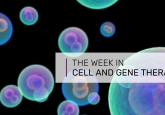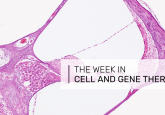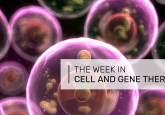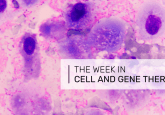Top 5 grants in regenerative medicine: July–August 2021
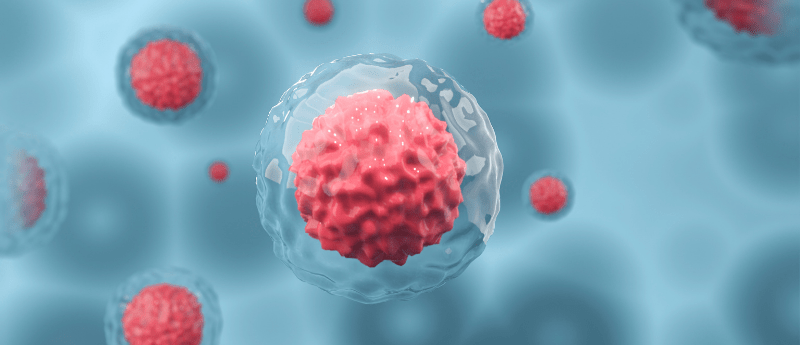
This month’s top grants in regenerative medicine, sourced from Dimensions, includes projects on: regenerating human retina from resuscitated cadaveric eyes, 4D printing of human vascularized cardiac patches and hearts for regenerative medicine, the impact of infection and inflammation on primitive hematopoiesis, viral-specific T-cell infusion to prevent infection after hematopoietic stem cell transplant, and immunomodulation of juvenile femoral head osteonecrosis.
Check out this month’s top grants in regenerative medicine:
- ‘Eyes in a care box’: regenerating human retina from resuscitated cadaveric eyes
- 4D printing of human vascularized cardiac patches and hearts for regenerative medicine
- The impact of infection and inflammation on primitive hematopoiesis
- Viral-specific T-cell infusion to prevent viral infection after hematopoietic stem cell transplant
- Immunomodulation of juvenile femoral head osteonecrosis
‘Eyes in a care box’: regenerating human retina from resuscitated cadaveric eyes
The aim of this project is to develop a revolutionary platform, termed the ECaBox (Eyes in a Care Box), to resuscitate the human cadaveric eye while ensuring eye function and structure ex vivo for an unmatched time period. The researchers hope that this new technology will challenge current paradigms of testing the efficacy and safety of regenerative therapies ex vivo. The team hope to explore the potential of this forefront technology by testing a regenerative therapy approach for retina degeneration.
Funding amount: USD$4.4 million
Funding period: 1 September 2021–31 August 2025
Funder: European Commission
Research organizations: King’s College London (UK), Center for Genomic Regulation (Spain), University of Barcelona (Spain), Bar-Ilan University (Israel), Institute for Bioengineering of Catalonia (Spain)
4D printing of human vascularized cardiac patches and hearts for regenerative medicine
In this research proposal, the investigators hope to go beyond the current state-of-the-art and develop novel 4D-printing approaches, allowing them to print human cardiac patches and whole functioning hearts, including ventricles, atria, pacemakers, conduction system and extensive vasculature, in high resolution. They also aim to decipher the mechanisms underlying the maturation of the printed tissues and hearts.
The team hope to demonstrate the ability of the printed, vascularized cardiac patches to improve heart function, and anticipate that successful completion of this project will provide a sustainable regenerative therapy for a myriad of devastating maladies.
Funding amount: USD$2.4 million
Funding period: 1 July 2021–30 June 2026
Funder: European Research Council
Research organization: Tel Aviv University (Israel)
The impact of infection and inflammation on primitive hematopoiesis
This project seeks to build upon the investigator’s previous research on delineating the molecular, transcriptional and epigenetic mechanisms by which inflammation regulators primitive hematopoiesis. The proposed research program is divided into three projects: 1) delineating the mechanism of action of Batf2 and Bst2 in inflammation-mediated hematopoietic stem cell (HSC) transplantation; 2) quantifying the impact of HSC differentiation on cloncal competition in order to provide critical insights into infection and inflammation as an environmental contributor to clonal hematopoiesis, and 3) ascertaining the importance of inflammation-induced transcription and epigenetic changes in HSCs to immunity.
The long-term goal of these studies is to provide physiologic knowledge that will lead to new strategies to protect and enhance bone marrow function for patients with bone marrow failure, cancer, stem cell transplant and chronic inflammatory conditions, as well as for the aging population at large.
Funding amount: USD$859,000
Funding period: 1 July 2021–30 June 2028
Funder: National Heart Lung and Blood Institute
Research organization: Baylor College of Medicine (TX, USA)
Viral-specific T-cell infusion to prevent viral infection after hematopoietic stem cell transplant
Although hematopoietic stem cell transplantation (HSCT) is a highly effective treatment, serious virus infections can occur in children undergoing HSCT. This research proposal seeks to make a critical advancement in viral-specific T-lymphocyte (VST) therapy by testing whether scheduled administration of bone marrow donor-derived VSTs 21 days after HSCT will be safe, and whether it will be as effective as current pre-emptive treatment involving VST administration once viral reactivation or infection has occurred.
The research team stated that this clinical trial may change the paradigm of treatment for viral infections if they are able to show that prophylactic VST infusion prevents infections.
Funding amount: USD$664,000
Funding period: 1 July 2021–30 April 2026
Funder: National Institute of Allergy and Infectious Diseases
Research organization: Cincinnati Children’s Hospital Medical Center (OH, USA)
Immunomodulation of juvenile femoral head osteonecrosis
In this grant, the investigators propose a new concept of reconditioning the necrotic bone using minimally invasive tissue engineering methods, thereby, converting a necrotic inflammatory microenvironment to a regenerative microenvironment. Their long-term goal is to establish these treatment methods to overcome the substantial inflammatory roadblock and to rapidly recondition the necrotic bone in order to jump start bone regeneration in patients with juvenile osteonecrosis of the femoral head.
The central hypothesis for this project is that the necrotic bone microenvironment triggers chronic inflammatory macrophage response, and that tissue engineering of the necrotic environment by local bone wash and application of macrophage-directional modulators will increase pro-healing macrophages and accelerate bone regeneration.
Funding amount: USD$635,000
Funding period: 1 July 2021–31 March 2026
Funder: National Institute of Arthritis and Musculoskeletal and Skin Diseases
Research organization: The University of Texas Southwestern Medical Center (TX, USA)
Brought to you with support from:


